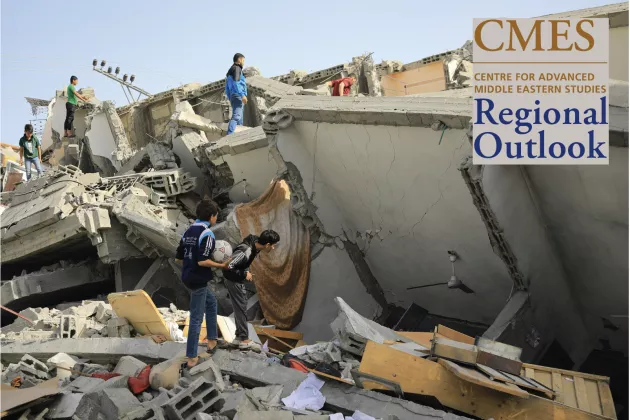And yet, Rojava, which has been a beacon of Kurdish self-administration and democratic governance, is now under significant threat from both internal and external forces. Internally, there are tensions between the SDF and Arab tribes, which are related to competition over natural resources and political influence, highlighting the need for the AANES to consolidate its power and address grievances within the Arab population. In Manbij, there has been heavy clashes between the SDF and Turkey-backed SNA. The SDF has reported successfully repelling multiple attacks, but the situation remains highly volatile as numerous news sources report that Manbij is no longer under SDF control. Given the current circumstances, it seems reasonable to suggest that the city is likely to fall under the control of the SNA. Not only Manbij, but also Raqqa, Tabqa, and Deir ez-Zor are areas where Arabs are demographically more numerous compared to Kurds, and the future of cooperation between the Arabs and Kurds in these areas remains uncertain. Meanwhile, the SDF forces have captured the city of Deir el-Zor and taken control of Syria’s main border crossing with Iraq.
Externally, Turkish military operations aimed at weakening Kurdish control are a constant threat to the AANES. Turkey views the US-backed SDF and YPG as extensions of the Kurdistan Workers' Party (PKK). Turkey’s primary objective is to prevent the Kurdish autonomous region along its border from gaining a political status, which it views as a direct threat to its national security. To this end, Turkey has carried out several operations in northern Syria in recent years, establishing a buffer zone to push back Kurdish forces which has also resulted in the displacement of civilians. Notably, Turkey, in cooperation with allied jihadi groups, previously seized control of Afrin in 2018, which was under Rojava's control. These actions have drawn international criticism, with accusations of human rights violations and war crimes. In fact, Sweden halted arms trade with Turkey in 2019 in response to Turkey's military operations in northern Syria, which were widely criticized for human rights violations and war crimes. These restrictions were later lifted during Sweden's NATO application process. Turkey also plays a crucial role as an ally to the Syrian opposition movements, and it has been serving as a vital support system for the rebel forces in Idlib.
The future of AANES, which controls around 30% of the lands in Syria including oil-rich areas, hinges on its ability to navigate these complex dynamics. Maintaining US support is crucial, as American military presence provides a deterrent against Turkish aggression. However, the region must also address internal divisions and work towards greater Arab-Kurdish reconciliation to ensure long-term stability. In line with these needs, the SDF and the AANES have issued statements in the past week, urging all able-bodied individuals to join the defense efforts against the recent advances by Turkish-backed forces and other hostile groups. The SDF has also emphasized the importance of unity and resilience among the Kurdish, Arab, and other peoples within Rojava, stressing that their collective strength is crucial in facing the current threats. The administration has been organizing mass meetings and emergency committees to evaluate the political developments and coordinate their defensive strategies.
The path forward for the Syrian peoples
The opposition groups in Syria are highly fragmented, and we do not yet know how power struggles will unfold among them. One thing we do know is that HTS – and its leader, Abu Muhammad al-Jawlani – has roots in Al-Qaeda and ISIS. Although it is now presented in a more moderate light, many uncertainties remain. On the other hand, the Rojava experience, supported militarily by the US and the Western coalition, has fiercely fought against ISIS, heroically resisted during the Yazidi genocide, and aspires to implement an emancipatory ideological paradigm based on the principles of direct democracy, ecology, and gender equality. It should not be overlooked that the AANES rule has a Social Contract, a foundational document that safeguards these principles and ensures the representation and rights of Kurds, Arabs, Yazidis, Syriac-Assyrians, Turkmens, Armenians, and other peoples.
In the wake of Assad's fall, it is important to remember that negative peace does not always equate to positive peace. The Syrian people, in all their diversity and voices, must determine the ways to build a truly inclusive democratic Syria where all communities can coexist in peace.







